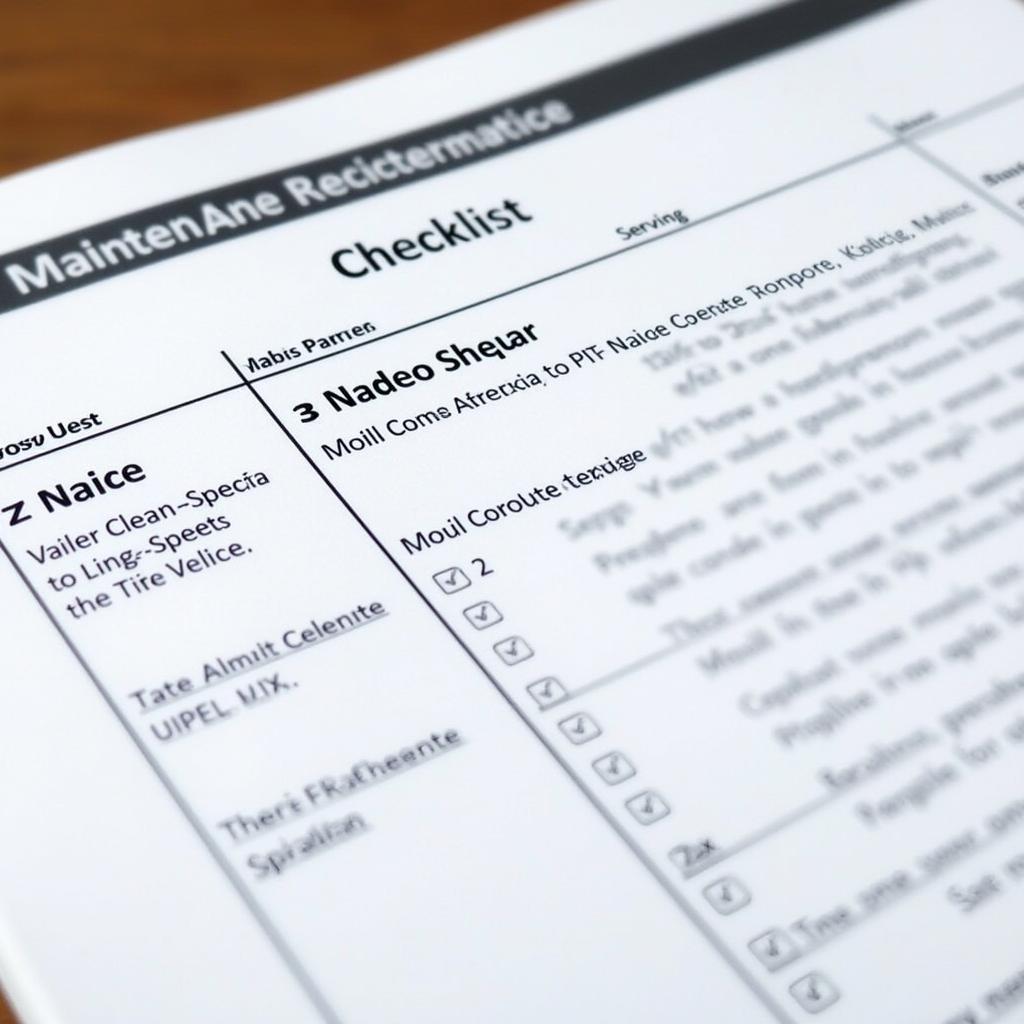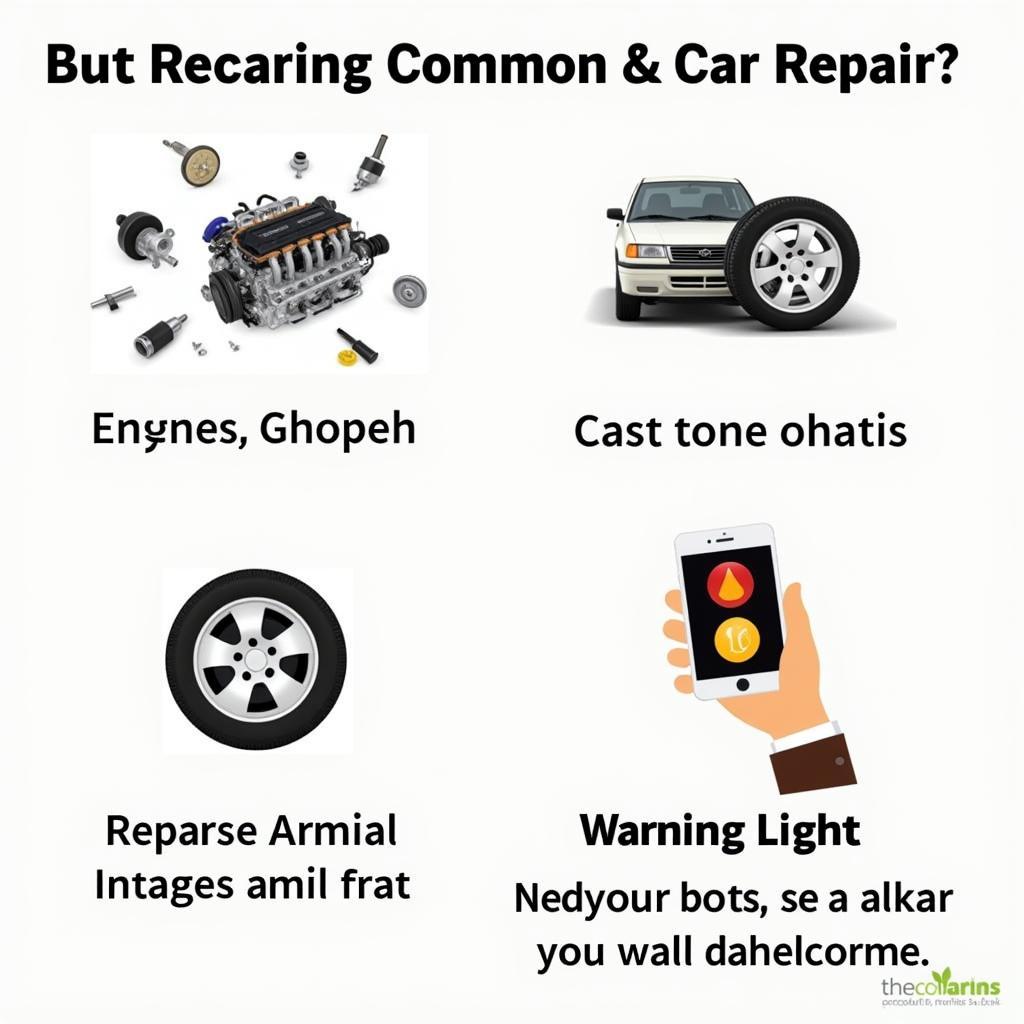What Do Mechanics Do When Servicing a Car?
When you take your car in for a service, what exactly are the mechanics doing? Understanding the process can help you appreciate the importance of regular maintenance and ensure you’re getting the best value for your money. We’ll delve into the intricacies of car servicing, covering everything from routine checks to more complex procedures. This will give you a clear picture of what happens behind the garage doors.
Maintaining your car with regular servicing is essential for its longevity and performance. Much like regular checkups at the doctor, car servicing allows mechanics to identify potential issues before they become major problems. Is it worth servicing your car? Absolutely. Not only does it prevent costly repairs down the road, it also ensures your safety on the road and can even improve fuel efficiency. Find out more about why servicing your car is a worthwhile investment.
The Standard Car Service Checklist
A standard car service typically involves a series of checks and replacements based on the manufacturer’s recommendations for your specific make and model. While the specifics may vary, most services cover the following areas:
- Oil and Filter Change: This is the cornerstone of any car service. Old, dirty oil can’t lubricate your engine effectively, leading to increased wear and tear. The filter removes contaminants, keeping the oil clean for longer.
- Fluid Top-Ups: Mechanics check and top up essential fluids, including coolant, brake fluid, power steering fluid, and windshield washer fluid. Proper fluid levels are crucial for the smooth and safe operation of various systems.
- Brake Inspection: Mechanics examine brake pads, discs, and lines for wear and tear, ensuring optimal braking performance.
- Tire Check: Tire pressure, tread depth, and overall condition are assessed to ensure safety and fuel efficiency.
- Battery Test: The battery’s charge and health are checked to avoid unexpected starting problems.
- Light Check: All lights, including headlights, taillights, brake lights, and indicators, are tested to ensure proper functionality.
- Exhaust System Inspection: Mechanics look for leaks, corrosion, and other issues that could affect emissions and performance.
Knowing what should a car service include empowers you to discuss your car’s needs with your mechanic. It ensures that you understand the services being performed and can make informed decisions about your vehicle’s maintenance.
Addressing Specific Concerns: Diagnostics and Repairs
Beyond the standard checklist, mechanics also address any specific concerns you might have about your vehicle. This involves diagnostic testing using specialized equipment to identify the root cause of any problems. Whether it’s a strange noise, a warning light, or a performance issue, mechanics use their expertise to diagnose and repair the problem effectively.
Using Diagnostic Technology
Modern car servicing relies heavily on advanced diagnostic technology. Mechanics use computerized scanners to access the vehicle’s onboard computer and retrieve diagnostic trouble codes (DTCs). These codes provide valuable insights into the health of various systems, allowing mechanics to pinpoint issues quickly and accurately.
Beyond standard servicing, you might be wondering who services Fiat cars or other specific makes. Specialized mechanics often have expertise in particular brands, offering in-depth knowledge and access to specific parts. This can be particularly beneficial for vehicles with unique requirements.
Preventative Maintenance: The Key to Longevity
Regular car servicing is a form of preventative maintenance. By addressing minor issues early on, you can prevent them from escalating into major problems that require costly repairs. It’s like brushing your teeth – a small, regular effort that prevents much larger problems down the line.
Scheduled Maintenance Intervals
Following the manufacturer’s recommended service intervals is crucial for optimal vehicle performance and longevity. These intervals are based on mileage and time, and they outline specific services that should be performed at each stage. Adhering to these schedules helps ensure that all essential components are checked and maintained properly.
 Car service maintenance checklist
Car service maintenance checklist
Wondering when shall I service my car? Refer to your owner’s manual for specific recommendations. Generally, most manufacturers recommend servicing every 6 months or 10,000 miles, whichever comes first. However, this can vary based on your driving habits and the age of your vehicle.
Conclusion
So, What Do Mechanics Do When Servicing A Car? They perform a series of checks, replacements, and repairs to keep your vehicle running smoothly and safely. From routine oil changes to complex diagnostic procedures, car servicing is essential for maintaining your car’s health and longevity. Regular servicing is a smart investment that saves you money in the long run and ensures a safe and enjoyable driving experience. Consider whether buying dealer service cars is a good option for you.
FAQ
- How often should I service my car? Refer to your owner’s manual for specific recommendations. Generally, every 6 months or 10,000 miles.
- What is included in a basic car service? Oil change, fluid top-ups, brake inspection, tire check, battery test, and light check.
- Why is car servicing important? Prevents costly repairs, ensures safety, and improves fuel efficiency.
- How can I find a reliable mechanic? Ask for recommendations, check online reviews, and look for certifications.
- What is preventative maintenance? Regular servicing and inspections to prevent small issues from becoming major problems.
- Do I have to go to the dealership for servicing? No, you can choose any reputable mechanic.
- What should I do if my car is making a strange noise? Take it to a mechanic for diagnostics.
Common Car Service Scenarios
- Dashboard Warning Light: If a warning light illuminates, a mechanic will use diagnostic tools to identify the problem.
- Unusual Noises: Mechanics can diagnose the source of unusual noises, like squeaks, grinding, or knocking sounds.
- Decreased Performance: If your car feels sluggish or hesitant, a mechanic can perform tests to determine the cause.
Further Reading
For more information on car maintenance and servicing, check out our articles on is it good to buy dealer service cars and is it worth servicing your car.
Contact Us
Need assistance with your car service? Contact us via WhatsApp: +1(641)206-8880 or Email: [email protected]. Our customer service team is available 24/7.

